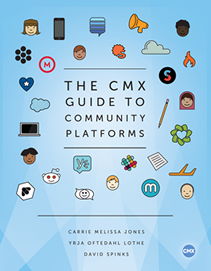Facebook’s “Community” Announcements and the Reality of Facebook Groups

My immediate reaction to Facebook’s “community” announcements: Great. I like Facebook.
Words are cool, but as we sit here today, group admins have an exceptionally poor toolset, provided by the world’s 8th most valuable company. When I say that Facebook Group admins don’t have the tools of forum admins in 2000, I’m not being hyperbolic.
This will still be true after they’ve added the new features they announced.
Read More



 I’m a big fan of
I’m a big fan of 
 CMX
CMX


